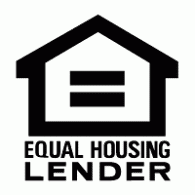In Arizona’s competitive housing market, many homeowners want to buy their next home before selling their current one. A cross-collateral loan makes this possible by using your existing home’s equity as leverage. Here’s how it works and whether it’s the right choice for your downsizing plans.
Downsizing your home can be an exciting and financially strategic move, especially as you prepare for retirement or seek a lifestyle change. One financing option that might come up in your search is the cross-collateral loan. But what exactly is a cross-collateral loan, and is it the right choice when downsizing your current primary home? This comprehensive guide will walk you through how a cross-collateral loan works, its pros and cons, and the key considerations you should consider.
What Is a Cross-Collateral Loan?
A cross-collateral loan is one type of collateral secured by multiple assets instead of just one. In the context of home buying, this typically means using the equity in your current home as collateral to secure a new loan for purchasing your next home. This setup can be particularly beneficial if you are downsizing and need a financial bridge between selling your current home and buying a new one.
How Cross-Collateralization Loans Work in Home Buying
When downsizing, you might find yourself in a situation where you must buy a new home before selling your existing one. Here’s how a cross-collateralization home loan can facilitate this process:
Assessing Equity: The lender evaluates the equity in your current home. Equity is the difference between the market value of your home and the amount you owe on your mortgage. For instance, if your home is worth $500,000 and you owe $200,000, your equity is $300,000.
Loan Approval: Based on the equity and your creditworthiness, the lender approves a cross-collateral loan. A cross-collateral loan uses your current home’s equity as collateral for the new mortgage on your downsized home.
Purchasing the New Home: The approved loan allows you to purchase your new home before your current home is sold. This can be advantageous in competitive markets where waiting to sell could result in losing your desired new home.
Repayment: After you move into your new home and sell your old one, the proceeds from the sale are used to pay off the cross-collateralization loan. Any remaining balance is transferred to a traditional mortgage or paid off, depending on your financial situation.
Weighing the Pros and Cons
Like any financial product, cross-collateral loans come with their own set of advantages and disadvantages. Understanding these can help you make an informed decision.
Pros
Facilitates Simultaneous Buying and Selling: One of the most significant benefits of a cross-collateralization loan is buying your new home before selling your current one. This can reduce the stress of finding temporary housing and moving multiple times.
Utilizes Existing Equity: By leveraging the equity in your current home, you might avoid needing a large cash down payment on your new home. This can be particularly helpful if your funds are tied to your existing property.
Potentially Lower Interest Rates: Depending on your lender and financial situation, you might secure a lower interest rate on these loans than on other bridge or short-term financing types.
Simplifies Financing: Handling the transaction through a single lender can streamline the process and reduce the complexity of securing separate loans for each property.
Cons
Risk of Losing Both Properties: The primary risk with a cross-collateral mortgage loan is that if you default, the lender can seize both properties. This is a significant consideration and underscores the importance of confidence in your ability to repay the loan.
Complexity: Cross-collateral loans can be more complex than traditional mortgages. Understanding the terms, conditions, and potential penalties is crucial before committing.
Potential for Higher Costs: Some lenders may charge higher fees or interest rates for the convenience of these loans. It’s essential to compare these costs against other financing options.
Limited Lender Options: Not all lenders offer cross-collateral loans, which could limit your choices. Finding a lender experienced in this type of financing is vital to ensure a smooth process.
Key Considerations Before Taking Out a Cross-Collateral Loan In Scottsdale, Phoenix, Arizona
Deciding whether a cross-collateral loan is right for you involves careful consideration of several factors:
Financial Stability: Ensure you have a stable income and a solid financial plan. The risk of losing both homes in case of default is significant, so it’s crucial to be confident in your repayment ability.
Market Conditions: Evaluate the real estate market conditions. If homes in your area sell quickly, you might not need the bridge a cross-collateral loan provides. Conversely, in slower markets, this loan can be a valuable tool.
Loan Terms and Conditions: Scrutinize the loan terms. Understand the interest rates, repayment schedule, penalties for early repayment, and other fees associated with the loan.
Alternative Financing Options: Consider other financing options such as traditional bridge loans, home equity lines of credit (HELOC), or selling your home before buying a new one. Compare the costs and benefits of each.
Professional Advice: Consult with a financial advisor or real estate professional who can provide personalized advice for cross-collateralization loans based on your unique situation. Their expertise can help you navigate the complexities of these loans.
| Feature | Cross-Collateral Loan | Bridge Loan |
|---|---|---|
| Collateral Used | Two properties (old + new) | Usually one property |
| Risk Level | Higher (both at risk if default) | Moderate |
| Use Case | Downsizing or upgrading before sale | Buying before selling |
| Repayment | After the old home sells | Typically short-term |
| Lender Options | Limited | Broader availability |
For many Arizona homeowners, a cross-collateral loan provides a more seamless financing path compared to bridge loans—especially when significant equity is available.
Brief Summary and Key Takeaways
A cross-collateral loan can be a powerful financial tool when downsizing your home. It allows you to leverage the equity in your current home to purchase a new one before selling. However, it comes with significant risks and complexities that require careful consideration.
Key Takeaways:
Leverage Equity: A cross-collateral loan uses the equity in your current home to finance your new home purchase, facilitating simultaneous buying and selling.
Evaluate Pros and Cons: While offering advantages like lower interest rates and simplified financing, these loans pose risks such as potential loss of both properties and higher costs.
Consider Market Conditions: The viability of a cross-collateralization loan depends on real estate market conditions and your financial stability.
Scrutinize Loan Terms: Understanding the loan terms, fees, and conditions is crucial to making an informed decision.
Seek Professional Advice: Consulting with financial and real estate professionals can provide valuable insights and help navigate the cross-collateralization loan process.
In conclusion, while a cross-collateral loan can offer a practical solution for downsizing your home, weighing the benefits against the risks and complexities is essential. Careful consideration and professional advice can guide you in making the best decision for your financial future.
Why Choose Blake Mortgage for Cross-Collateral Loans
- Local experts serving Scottsdale, Phoenix, and Mesa homeowners
- 20+ years helping Arizona residents finance home transitions
- Fast processing and clear guidance on dual-collateral lending
- Personalized strategies for downsizing, refinancing, or relocating
Blake Mortgage helps you move forward confidently, leveraging your home equity the smart way.
Blake Mortgage offers cross-collateral loans across Scottsdale, Phoenix, and other Arizona cities. Whether you’re downsizing, relocating, or investing, our experts can help you use your current home’s equity to finance your next move efficiently and securely.





